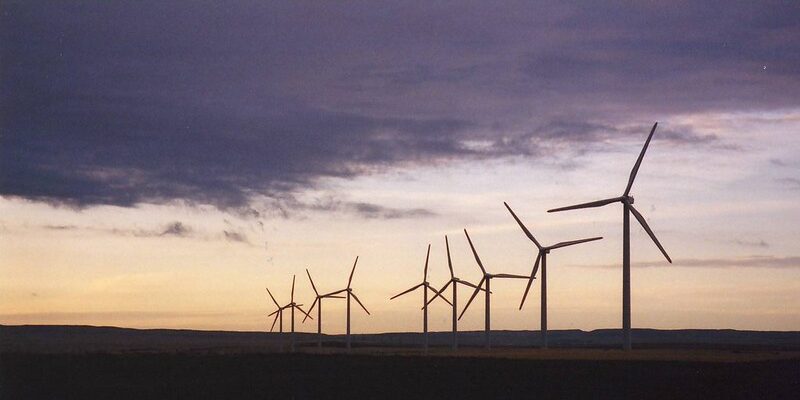Alberta has been leading a renewable energy boom in Canada. It holds tens of billions in investments, and close to $3 billion in projects underway — providing good employment and clean power. It’s no wonder. The province has abundant sun and wind and room for solar and wind installations, as well as a skilled workforce and people who care about the spectacular nature around them.
Alberta also has an “open market” electricity system that allows producers to sell to private power providers.
Despite the increasing benefits of renewable energy for Alberta and beyond, the provincial government recently put a seven-month hold on large solar and wind projects — with little notice or consultation.
Although the province’s lax regulatory environment could use tightening up for all large energy projects — including gas, oil and coal — that doesn’t require a moratorium on one sector. The Alberta government provided shaky justifications for this move. Its overzealous support for the fossil fuel industry and antipathy to climate policy are well known. So it’s easy to question its true motive.
Regulatory concerns unfounded
The government says it wants time to study impacts on the grid and rules around decommissioning. Again, that does not require shutting down the industry.
“We’ve conducted regulatory reviews for both coal bed methane production and the oil sands industry for years — all without pausing development,” Jorden Dye, acting director of Business Renewables Centre-Canada, told the Guardian.
As for reclamation rules, Alberta has hundreds of thousands of oil and gas wells that companies are legally required to decommission when they’re finished — one for every 1.4 square kilometres of land!
But companies often declare bankruptcy and walk away from cleanup responsibilities. A growing number of wells — now in the tens of thousands —have become inactive.
The federal government has already put $1 billion into cleanup, and the province wants to kick in at least $100 million in tax credits to convince companies to fulfill their legal obligations.
Consider also the premier’s response to the federal government’s necessary and sensible draft clean electricity regulations. They aim to achieve net-zero carbon emissions from power generation by 2035.
“We will never allow these regulations to be implemented here, full stop,” Premier Danielle Smith said.
Natural gas reframed as a ‘climate solution’
Why would the Alberta government try to prop up a dying industry at the expense of billions of dollars of investment, good jobs, opportunities in rural areas, and cleaner air and environment?
It appears to be part of the fossil fuel industry’s newest effort to stay alive by selling “natural” gas as a climate solution rather than the polluting fuel it is.
Politicians, including Alberta’s environment minister, have joined industry in touting the “benefits” of continued gas power.
As heat pump and renewable energy adoption accelerate worldwide, industry’s hyping (mostly fracked) methane gas as a climate solution and downplaying better alternatives are misleading at best.
Gas supplier FortisBC recently removed information on the benefits of heat pumps and electrification from a joint government-industry report about the role of gas in the clean energy transition. When Enbridge applied to expand its gas network in Ontario, the company used a flawed study that inflated by billions of dollars the cost of switching buildings from gas to electric heat.
Renewable energy an easy solution
The truth is, it now costs less to generate electricity with wind and solar than gas, even with storage. Costs for renewables are dropping while gas and other fossil fuel prices are climbing in volatile markets.
It’s not a lack of available solutions holding us up. It’s a lack of political will. David Suzuki Foundation research shows Canada could achieve not just net-zero emissions, but emissions-free electricity by 2035, without relying on new nuclear, new large hydro or carbon capture and storage.
It’s bad enough that political leaders who seemingly understand the climate crisis aren’t doing enough. It’s worse that some are openly hostile to the very idea of protecting the world — our children and grandchildren and those yet to be born — from the rapidly increasing consequences of wastefully burning coal, oil and gas.
Everyone will benefit from the clean energy transition — from cleaner air, a stable climate, good jobs, economic opportunities, better energy security, affordable power and more. Some politicians may think progress is impossible, but people in Alberta and all of Canada know better.
We need politicians to represent our interests, not those of a dying, polluting industry.
David Suzuki is a scientist, broadcaster, author and co-founder of the David Suzuki Foundation. Written with David Suzuki Foundation Senior Writer and Editor Ian Hanington. Learn more at davidsuzuki.org.



